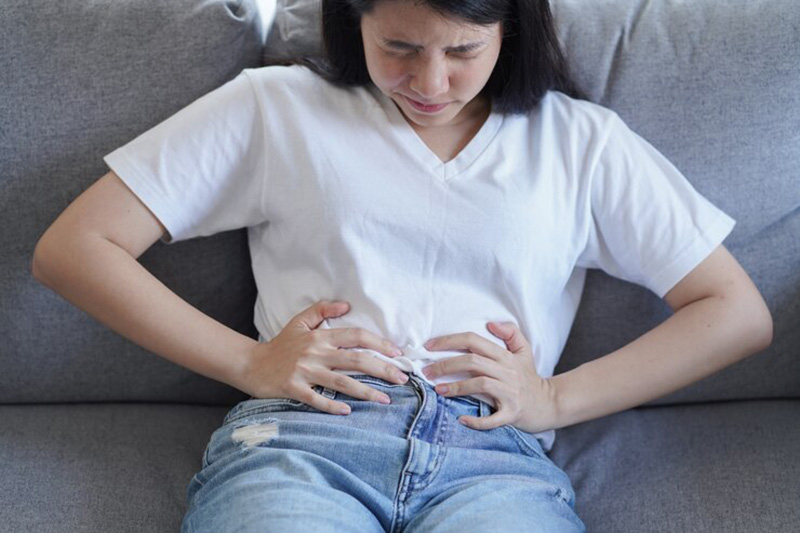Women’s probiotics are generally considered beneficial for gut health and digestive health. They comprise live beneficial bacteria that can help maintain a balanced and healthy gut microbiome. However, in some cases, especially when starting a new probiotic supplement or consuming a high dosage, some individuals may experience side effects, including temporary digestive system discomfort such as gas, bloating, or diarrhea. This can occur as your gut microbiome adjusts to introducing new bacteria. However, it’s normal and a sign that they are working.
The Link Between Probiotics and Diarrhea
Probiotics, in general, have been celebrated for their numerous health advantages. However, in the initial stages of probiotic supplementation, it is not uncommon to experience transient diarrhea, particularly when introducing a high dosage or a novel probiotic strain. This occurrence is a normal response, as introducing new beneficial bacteria prompts the body to eliminate harmful bacteria.
Consequently, this process may result in loose stools, which diminish within a few days as the body adapts to these new microorganisms.
Research has demonstrated the potential efficacy of probiotic strains, such as Lactobacillus acidophilus (LA-5) and Bifidobacterium (BB-12), in managing antibiotic-associated diarrhea when administered as a probiotic supplement.
Are There Any Specific Strains In Women’s Probiotics That Cause Diarrhea?

While strains like Bifidobacterium and Lactobacillus are common in women’s probiotics, diarrhea isn’t linked to a specific pressure but rather the introduction of new bacteria.
Possible Reasons Of Probiotics Causing Diarrhea
Women’s probiotics are specifically formulated to support women’s health, including vaginal and urinary tract health. While they are designed to be gentle on the digestive system, individual reactions can vary. If you experience diarrhea or any digestive discomfort after starting a women’s probiotic, here are some possible reasons and steps to consider:
- Dosage: High doses of probiotics, especially if you’re not used to them, can sometimes lead to digestive upset. Start with a lower dose and gradually increase it as your body adapts to the probiotics.
- Strain Selection: Different probiotic strains can have varying effects on individuals. Some strains may be more likely to cause digestive discomfort in certain people. Try a different probiotic with different strains to see if it suits you better.
- Quality: The quality of the probiotic supplement can make a difference. Choose a reputable brand with well-tested and high-quality products.
- Underlying Health Conditions: If you have underlying gastrointestinal issues or medical conditions, it’s important to visit healthcare before adding any new supplement to your routine, including probiotics. They can provide personalized guidance.
- Duration: Sometimes, digestive discomfort when starting probiotics can be temporary as your gut microbiome adjusts. It may resolve on its own after a few days or weeks.
- Hydration: Stay well-hydrated, as diarrhea can lead to dehydration. Drink plenty of water to stay hydrated.
Other Potential Side Effects Of Probiotics
When we introduce any new component into our diets, the body might take some time to adjust. Our body requires a settling period when shifting to a new environment. Before becoming familiar, there might be a few bumps along the way. Let’s look at some typical reactions or side effects people might experience when beginning or adjusting their probiotic regimen:
- Diarrhea is a more common initial side effect, especially if one starts with a high dosage. It’s the body’s way of adjusting to the new bacterial environment.
- Bloating: An influx of probiotics can sometimes lead to bloating, especially in the initial stages. As the gut flora evolves and balances out, this symptom often diminishes as probiotics help with bloating.
- Gas: A sudden increase in beneficial bacteria can cause a temporary spike in gas production. This is a typical reaction and should subside as the body gets accustomed to the probiotic.
- Stomach Cramps: For some, introducing new strains of bacteria can cause mild stomach discomfort or cramps. This usually indicates the body’s process of adapting and should not persist for an extended period.
- Itchy Skin: Though less common, some individuals might experience itchy skin or even minor rashes. It’s essential to monitor such symptoms and consult with a healthcare provider.
When to Consult a Healthcare Provider?
Any prolonged discomfort or severe digestive issues should be a sign to consult a healthcare or nutrition professional. Especially if you’re experiencing symptoms of an imbalanced gut, it’s essential not to self-diagnose. Seeking guidance from a nutritionist or doctor can ensure a safe and effective path to improve gut health.
Conclusion
Probiotics might be a good option to improve your gut health. Probiotics can help balance your gut, improve digestion, and enhance overall health. Listen to your body, stay informed, and seek expert advice. Remember that the journey may come with challenges, but the rewards make it worth it.
Frequently Asked Questions
What are women’s probiotics?
Women’s probiotics are specific strains of beneficial bacteria formulated to cater to the unique physiological needs of women, often focusing on both gut health and vaginal flora.
How long does it take for the body to adapt to new probiotics?
The adjustment period varies for each individual. Most people see the side effects diminish within a few days to weeks.

